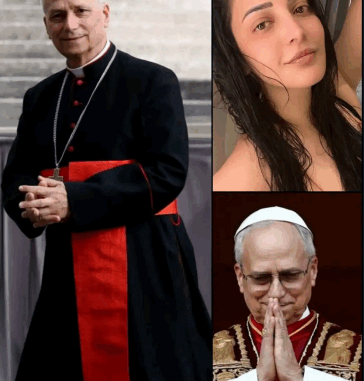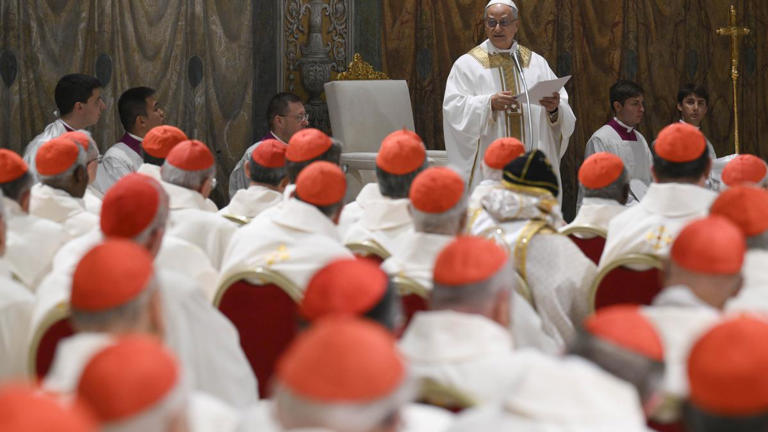
LGBTI Christian groups are eagerly awaiting the arrival of Leo XIV, whom they welcomed with relief, despite his statements 15 years ago on sexual diversity, an issue that “doesn’t seem likely to be a priority on his agenda,” believes sociologist and religious expert Mar Griera.
The election of Leo XIV halts the counteroffensive of the ultra-right wing of the Catholic Church.
The newly elected Pope Leo XIV is “anti-Trump” and a candidate for the most progressive cardinals, but also a safe and balanced candidate between those who were committed to following Francis’ legacy and those pushing for a return to Catholic conservatism. We will have to wait and see how this plays out in his stance on the LGBTI community after Bergoglio’s openness—which nevertheless left profound changes pending —but, for now, what’s on the table are some public statements that allow us to guess his position. At least, at the time he made them.
Because it was in 2012 that Robert Francis Prevost lamented in a speech to the bishops that the Western media and popular culture were “promoting sympathy for beliefs and practices contrary to the Gospel,” among which he cited “the homosexual lifestyle” and same-sex couples. In that same speech, he described “gender ideology” as “confusing” because it “seeks to create genders that don’t exist.”
However, LGBTI Catholic communities received Prevost’s appointment with relief: although the name of the Filipino Luis Antonio Tagle was heard as a papal candidate most in tune with the community, Leo XIV is far removed from the ultra-right anti-LGBTQ alliances gaining ground globally. At the same time, however, the organizations are cautious and expectant about the pontificate that has just begun, and over which they will be vigilant. “Francis opened windows for the LGBTI community. Let’s hope Leo XIV doesn’t close them, and let’s see if he at least begins to look for where the doors are,” argues Raúl Peña, spokesperson for Crismhom, the LGBTI Christian community in Madrid.
An ambiguous position
For the moment, Peña’s impressions are not negative. Although he recognizes the difference between the public statements of Jorge Bergoglio and Prevost, he believes the latter’s known statements are insufficient to be conclusive. “These are statements from 15 years ago; not even I hold the same opinion before as I do now… To think about how the pontificate will be in light of those statements would be to engage in prognostication based on the past,” adds this gay Catholic.
For its part, the Global Network of Rainbow Catholics, the largest network of LGBTI Catholics in the world, acknowledges that the new pope’s words “reflect a conservative stance” on sexual diversity, although it agrees that “ideas can change” over the years. At the same time, it emphasizes that although he has shown himself to be favorable “to marginalized groups,” his stance on issues such as the blessing of same-sex couples “remains ambiguous,” the organization laments. In 2023, after Francis’ declaration allowing them was approved, Prevost asserted that it would not “work” in Africa.
Even so, all the voices consulted call for waiting to see in what direction Leo XIV takes his first steps. “Perhaps the time he has spent with Francis may have helped him modify his impressions,” agrees Gema Segoviano, coordinator of the Faith and Spirituality group of the State LGBTI Federation. “In any case, he should consider that his words can be harmful or comforting. Francis had the opportunity to meet and listen to LGBTI people, which is the way to dispel stereotypes. I hope the new pontiff will also follow that path,” she adds.
Within this same framework, the Global Network of Rainbow Catholics calls on the pontiff to continue promoting “broad listening and deep reflection on previously taboo topics” and trusts that “progress will continue toward building a more welcoming and inclusive Church.” “We hope that he will continue to learn from the stories of LGBTIQ people, celebrate our gifts, and recognize that certain teachings and practices have caused harm and must be reexamined,” says Marianne Duddy Burke, co-president of the network.
“They will not be key issues”
Christian LGBTI groups are clinging to Prevost’s first words from the balcony of St. Peter’s Basilica after being elected. He delivered a speech in Italian and partly in Spanish, in which he defended “a Church that builds bridges, dialogue, ready to welcome all those in need.” These references are in line with Francis’s and, for Raúl Peña, a sign of optimism. “We would have loved for him to have come forward and said he was going to change the doctrine, but since that’s unlikely to happen, we believe what he said is hopeful.”
Bergoglio’s legacy in this regard stands out especially for his gestures toward LGBTI realities, which contrasted with the repeated disdain of previous pontiffs. Francis frequently received and spoke with members of the community, and his archives contain a handful of ambiguous statements on the subject—from the famous “Who am I to judge them?” to the “faggotness” of seminaries. His blessings for same-sex couples and his approval of transgender people being baptized (with conditions) were his two most significant steps forward, but at the same time, he did not undertake a profound transformation of the Church’s sexual doctrine.
That will be precisely “the difficulty” for Leo XIV in this matter, believes Mar Griera, a sociologist at the Autonomous University of Barcelona and director of ISOR, a research group on the sociology of religion. “Francis had made symbolic displays of support that amounted to little. The problem for Prevost is that Bergoglio had already made the gestures, and he would have to make doctrinal changes that will be very difficult to achieve in the short term. First, because he will face strong opposition, and second, because he has already stated that his main objectives will be social and peace issues,” the expert maintains.
Griera emphasizes that the pontiff’s public interventions regarding the collective “are few and far between” and “date back a long time” because Leo XIV “maintained a low profile” on the issue. This leads him to conclude that neither gender nor LGBTQI+ issues will be central to his agenda. “We’ll see if he’s capable of listening and changing his mind, but it doesn’t seem like these will be his key issues,” he concludes.
